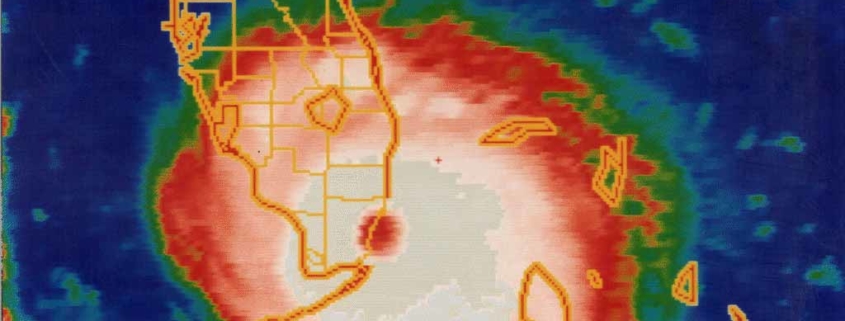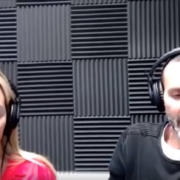The Trauma of Hurricanes and Divorce
If you are going through divorce, you may have noticed that you are feeling and acting differently. You may have trouble sleeping, or your appetite might have changed. Perhaps the things that normally bring you joy, such as hanging out with friends, now just create anxiety or anger. Maybe you are having difficulty thinking clearly, and you are just paralyzed to make a decision.
If so, this is normal. You are going through divorce. You are going through a trauma.
As we are in the midst of another potential trauma, hurricane threats, perhaps now is a good time to explore how trauma affects us.
Divorce as a Trauma
Most people, especially lawyers and judges, do not think about divorce as a trauma. But consider this: in divorce you are facing a death, the death of a relationship. When you entered the marriage, you were sure that the marriage would be the foundation of your future life and happiness, but now that foundation is crumbling. Your life might seem like it is falling apart.
If you have had the death of a close relative, you know how traumatic it can be. This is how society should think of how we experience divorce.
As with other trauma, you may be experiencing an amygdala hijack. The amygdala is the part of our brain that sends us into a “fight, flight, or freeze” response when we face a threat. When we are in the midst of a trauma, our amygdala can go into overdrive, interfering with our ability to function as we normally do.
As you can imagine, when your brain is constantly telling you that you need to fight, get out of the situation, or just do nothing and wait out the danger, life can be difficult. This is especially so when you are expected to make long-lasting decisions concerning your children and your finances while you are having difficulty thinking straight.
Managing the Trauma of Divorce
This is why I strongly believe divorce does not belong in the courthouse. In this adversarial system, the trauma is piled on. And, what’s more, the worst time of your life is being aired in a public setting and transcribed into public records.
Fortunately, there are alternatives. In the collaborative divorce process, you and your spouse have separate attorneys. The attorneys are there solely for the purpose of reaching an out-of-court agreement. You, your spouse, and both attorneys work together as a team to help figure out what is the best solution for you and your family.
Because divorce is a trauma, a neutral Collaborative Facilitator, with a background in psychology, trauma management, interpersonal communications, and/or childhood development, oftentimes helps your family. There may be times that you or your spouse act out or where things feel like they are going off the rails. The Collaborative Facilitator will work with both you and your spouse to stabilize the situation, make sure your concerns are heard, and find a way to bring us back together.
Further, a neutral Financial Professional can be brought in to help ensure that you are making sound financial decisions. The Financial professional will work with both of you to see that all assets and debts are identified. He or she can also build a budget for your future to address concerns about whether any agreement you reach is sustainable.
Collaborative divorce is a sensible option to help you work through the trauma of divorce and preserve your long-term future.
A Personal Note About the Trauma of Hurricanes
When any potential client comes into my office, I discuss with them the trauma of divorce. In most situations, it rings true for them. If not, they can usually see the amygdala hijack in their spouse.
Through most of my time as an attorney, I felt fortunate that I had not personally experienced a trauma. Rather, my explanation to clients of trauma was through my training in the intersection between family law and psychology and my experience with clients.
And yet, in 2017, I had a reminder that I had gone through a trauma. That year, Hurricane Irma began threatening the Tampa Bay area. I remember sitting at a restaurant that had a television tuned into the weather. It showed that a major Category 5 hurricane was anticipated to hit Tampa in several days.
At first, I froze. I remember the waitress saying something to me, but I could not quite make it out. After a few moments, I realized she was asking whether I wanted to order anything else.
As I was paying my check, all I could think of was, “I need to get out of here,” over and over again. Not just the restaurant, but out of Florida. Out of danger. And so I quickly packed up my family and left for the safety of Dillard, Georgia.
1992 – The Year of Hurricane Andrew
What I have since come to realize is that my reaction to the news of Hurricane Irma was linked to my experience of Hurricane Andrew.
In 1992, I was 12 years old, and I was visiting my older sister who lived in Tampa. My parents were vacationing in North Carolina. The forecasts were predicting that Hurricane Andrew would move towards Tampa Bay. Accordingly, my parents arranged to have me driven down to Miami, where where we lived at the time. I would be staying with my brother, who was home from University of Florida, and our Doberman Pinscher, Sam.
When I got home to Miami, the forecasts had changed. Now it looked like Andrew was barreling towards South Florida.
My brother decided that we would stay at a friend’s house, in the community of Country Walk, which was a bit more inland than our house. We were staying with a family friend and her son.
As the hurricane approached, we taped up all the windows, and we made our final preparations. We chose a windowless room, just off of the garage, that we would run to in case windows started breaking. My brother, Sam, and I went to an upstairs bedroom to try to get some sleep.
And it Begins
As the wind picked up, the Doberman was getting nervous and began pacing around the room. Around 2 am, we started hearing thumps against the wall, presumably the wind picking up debris and flinging it against the house.
We went downstairs, to find my brother’s friend and his mom in the living room huddled around the TV. They, too, could not sleep.
Shortly after, the first window broke.
Rather than go to the room we had initially chosen off the garage, all of us ran to a small half-bathroom that was just feet away.
And it began to sound like chaos all around us. We heard more windows breaking and the sounds of smashing all around us. The wind was deafening.
There we were three adults, one 12 year old, and a Doberman cramped in a bathroom. For hours. At one point we discussed that, if the bathroom did not hold, we would have to try to run to a neighbor’s house. If so, the most important thing was that we got there alive. And we didn’t know whether Sam would or could run with us, and I was worried he would not make it. As a 12-year-old, I remember being more scared for our dog than for ourselves.
We were in that small bathroom for six hours. At one point, we looked up through the light fixture of this first floor room, and we could see the sky. But the winds were dying down, and all the crashing had subsided.
We didn’t know if the hurricane was truly coming to the end or if this was just the eye of the storm, a temporary respite.
Utter Devastation
Nonetheless, we ventured outside. When I say outside, I mean to say that once we opened the bathroom door, we were outside. That bathroom door used to lead to the living room, but the house no longer had a living room.
As we inspected the damage around the house, we saw that the small half-bathroom that we had stayed in was the only room left in the house with four walls and a ceiling. The room off of the garage that we had originally planned on fleeing to was destroyed. The beds that my brother and I were sleeping in hours earlier in the upstairs bedroom were hanging halfway out of the house.
Later, we started exploring around the neighborhood. Eventually, my brother, Sam, and I went to check on our home. We got lost, as we did not recognize anything. The street signs were gone. Trees were blown over. The usual road marks were no longer there. It was like a bomb had exploded over our Miami neighborhood. Utter devastation.
That we had survived was a miracle. But we had survived. However, the survival left its mark.
Conclusion
As Hurricane Dorian was heading towards us in the past couple of days, I did not feel the panic I felt from Irma two years ago. Perhaps it was because Irma headed for Tampa Bay directly from the Gulf of Mexico, whereas Dorian would have substantially weakened, coming across the State of Florida, if it did hit Tampa Bay. Perhaps it was because I have come to recognize that trauma of Andrew for what it was. Even so, I did feel a bit skittish as I was ensuring that I had all the supplies I needed in the event the forecast changed.
And it served as another reminder for me of the trauma that you face as you are going through divorce. As an attorney, I want to help you and your family get through this time with a sensitivity, understanding, and respect that the court system simply cannot provide.
You will get through this traumatic period in your life. And we can help.
Adam B. Cordover is an author published by the American Bar Association and a Collaborative Attorney. He is on the boards of the International Academy of Collaborative Professionals and the Florida Academy of Collaborative Professionals. He teaches attorneys, mental health professionals, financial professionals, and mediators how to offer Collaborative services.







